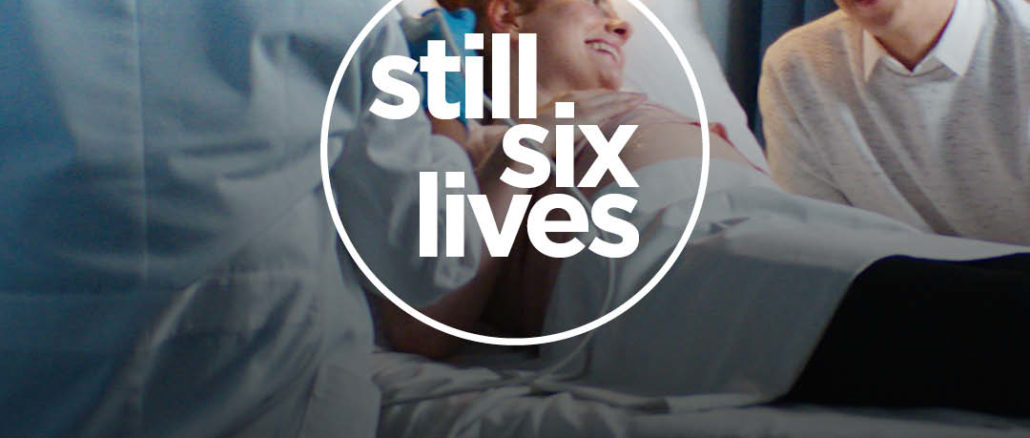
Almost six in 10 (57%) Australians know someone who has experienced a stillbirth, according to new data out today. Across the country, around 2,200 babies are stillborn every year – or six every day. Australia holds one of the worst records in the developed world for stillbirth, with a rate that has remained unchanged for 20 years.¹
Despite these alarming statistics, the survey of over 1,600 Australians discovered less than one in three (29%) are aware sleeping on your side from 28 weeks of pregnancy is a key behaviour that can help reduce the risk of stillbirth.
The data release comes as a group of organisations join forces to create Still Six Lives, a national public awareness and education initiative aiming to lift the lid on the hidden tragedy of stillbirth in Australia and arm people with knowledge that could someday save an unborn life.
Still Six Lives has been developed to help dispel the sense of shame that surrounds stillbirth, break down social barriers that prevent parents of stillborn children receiving the love and support they need, and help reduce the risk of stillbirths through education around three proven behaviour tactics.
Whilst many people are aware of the issue of stillbirth, there is a lack of understanding about how to reduce the risk. In fact, one in five (19%) of those surveyed incorrectly disagreed that sleeping on your side during pregnancy can reduce the risk of stillbirth.
There are things that can be done to reduce the risk of stillbirth. Still Six Lives aims to help raise awareness of the importance and efficacy of these actions.
Funded by the Federal Government, Still Six Lives is delivered by a consortium of established Australian organisations. Each focused on supporting families through pregnancy and pregnancy loss, the group includes Red Nose, including SANDS (Stillbirth and Newborn Death Support), Stillbirth Foundation and Stillbirth Centre of Research Excellence.
Jackie Mead, Still Six Lives spokesperson and Co-CEO of Red Nose, said it’s high time for Australia to come together in addressing this critically important issue:
“Stillbirth is close to so many of our hearts. Six in 10 of Australians told us they’ve been connected to a stillbirth in some way. The reality is, this number is likely to be much higher due to the culture of silence associated with stillbirth.
“Having a stillborn baby is categorically not something to be ashamed of. It’s universal; it can happen to anyone, anywhere. This is a conversation we need to be having.
“Stigma is stopping people from sharing vital information about how to reduce the risk of stillbirth. We need to move on from unhelpful myths about mothers being emotional and worrying too much, or even that they can “wake” their baby up instead of contacting maternity care professionals.
“If we can start to end the silence surrounding stillbirth, more and more people will become aware of the simple steps which can help to minimise the risk. Every family we can support, every stillbirth we can help try to prevent, is our driving goal.”
Jane Wiggill, Red Nose Chief Midwife & Manager, Health and Advocacy, added:
“The rate of stillbirth in Australia is 6.7 per 1,000 births – that’s one family suffering this devastating loss every four hours.
“Not every stillbirth is preventable – despite enormous technological and medical advances, the rate of stillborn babies has not declined in two decades – but there are three simple steps that can help reduce the risk.
“Smoking is a significant risk factor for stillbirth, so stopping smoking and avoiding second-hand smoke is important. This is a difficult habit to break for some, so reach out for support if you need it. You’re not alone.
“Also crucial is feeling your baby move, and contacting your maternity care professional immediately if you feel a change in movements. Although it is a common myth, babies do not stop moving towards the end of pregnancy.
“Lastly, and seemingly lesser-known, sleep on your side from 28 weeks to halve your risk of stillbirth compared to sleeping on your back. There are plenty of pillows and support systems out there to support this important change in sleeping style.”
Still Six Lives has created an emotive video to help highlight the issue, featuring expectant parents at an ultrasound scan, anticipating the joy of a new life and the baby they are yet to meet.
To find out more about Still Six Lives, including advice, support services and how to support loved ones, visit preventstillbirth.org.au.
SheSociety is a site for the women of Australia to share our stories, our experiences, shared learnings and opportunities to connect.

Leave a Reply